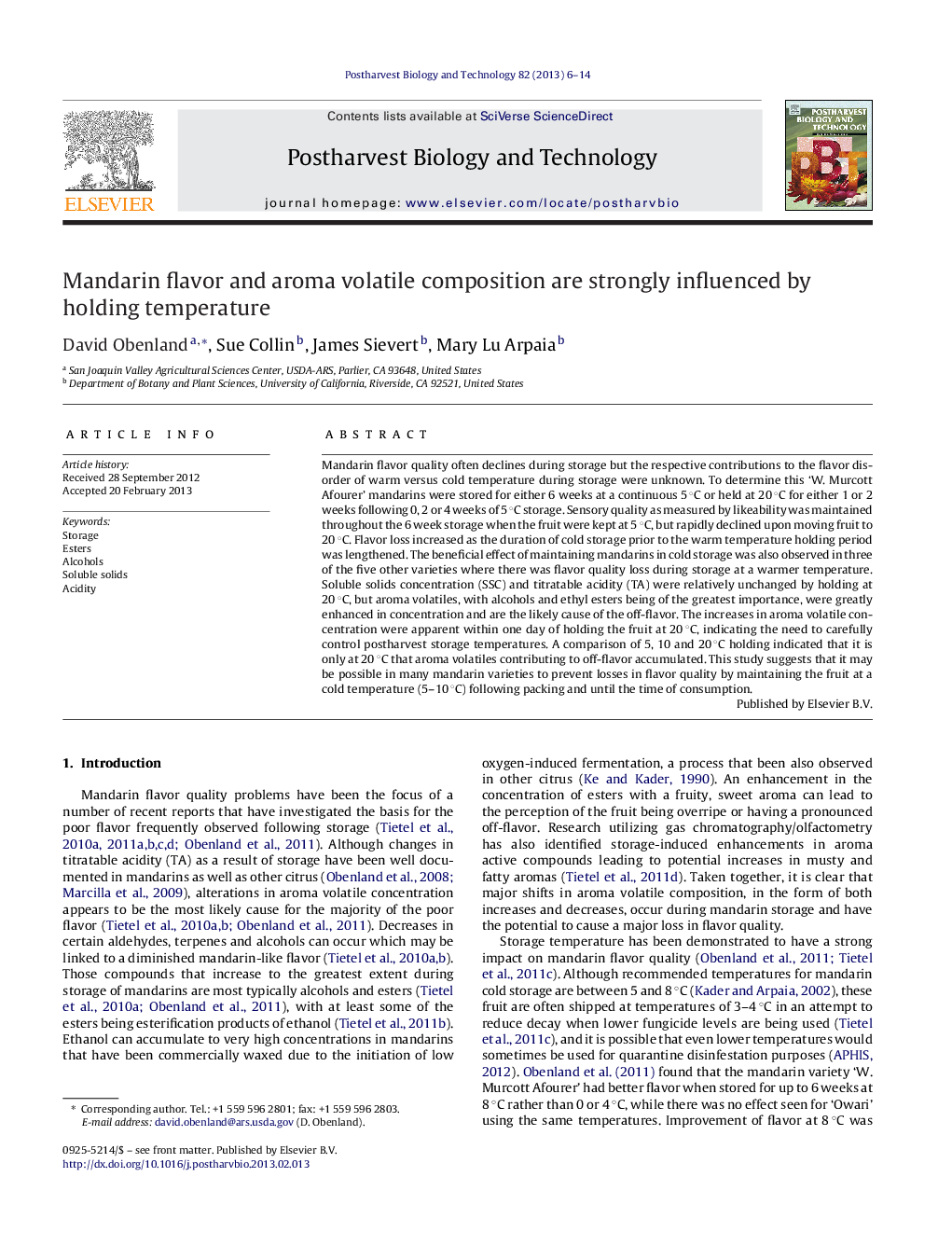| Article ID | Journal | Published Year | Pages | File Type |
|---|---|---|---|---|
| 4518463 | Postharvest Biology and Technology | 2013 | 9 Pages |
Mandarin flavor quality often declines during storage but the respective contributions to the flavor disorder of warm versus cold temperature during storage were unknown. To determine this ‘W. Murcott Afourer’ mandarins were stored for either 6 weeks at a continuous 5 °C or held at 20 °C for either 1 or 2 weeks following 0, 2 or 4 weeks of 5 °C storage. Sensory quality as measured by likeability was maintained throughout the 6 week storage when the fruit were kept at 5 °C, but rapidly declined upon moving fruit to 20 °C. Flavor loss increased as the duration of cold storage prior to the warm temperature holding period was lengthened. The beneficial effect of maintaining mandarins in cold storage was also observed in three of the five other varieties where there was flavor quality loss during storage at a warmer temperature. Soluble solids concentration (SSC) and titratable acidity (TA) were relatively unchanged by holding at 20 °C, but aroma volatiles, with alcohols and ethyl esters being of the greatest importance, were greatly enhanced in concentration and are the likely cause of the off-flavor. The increases in aroma volatile concentration were apparent within one day of holding the fruit at 20 °C, indicating the need to carefully control postharvest storage temperatures. A comparison of 5, 10 and 20 °C holding indicated that it is only at 20 °C that aroma volatiles contributing to off-flavor accumulated. This study suggests that it may be possible in many mandarin varieties to prevent losses in flavor quality by maintaining the fruit at a cold temperature (5–10 °C) following packing and until the time of consumption.
► We investigated the impact on mandarin flavor of warm versus cold temperatures during storage. ► The warm temperature portion of the storage regime was mainly responsible for the observed flavor loss. ► Increases in concentrations of aroma volatiles were the most important factors related to flavor loss. ► Mandarin flavor may be preserved by maintaining the fruit at 5–10 °C until the fruit are eaten.
